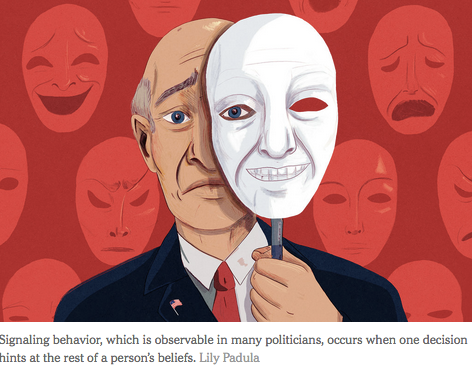After all, many Republican senators voted in favor of their party’s repeal effort after having bitterly denounced it. Senator Lindsey Graham of South Carolina, for example, called one version of the repeal bill a “disaster” and a “fraud.” Several of his colleagues went further, saying they would support the legislation only if Senate leadership could promise that it would never be enacted. Yet Mr. Graham and all but three Republican senators eventually voted for repeal.
Their behavior may seem less puzzling if you are familiar with a 1994 paper by Glenn Loury, now an economics professor at Brown. Building on earlier work by the sociologist Erving Goffman, Mr. Loury’s core insight was that people, especially politicians, often engage in signaling games, which put enormous pressure on them to act in ways that contradict their private beliefs.
Of course, private beliefs are not directly observable. We must try to infer them from what people say and do, and often their beliefs, words and actions aren’t consistent. Economists have found that signaling behavior often helps us resolve the apparent contradictions. The underlying logic of the argument is vividly illustrated by the behavior of politicians faced with votes on controversial issues, like health care, or the death penalty.




